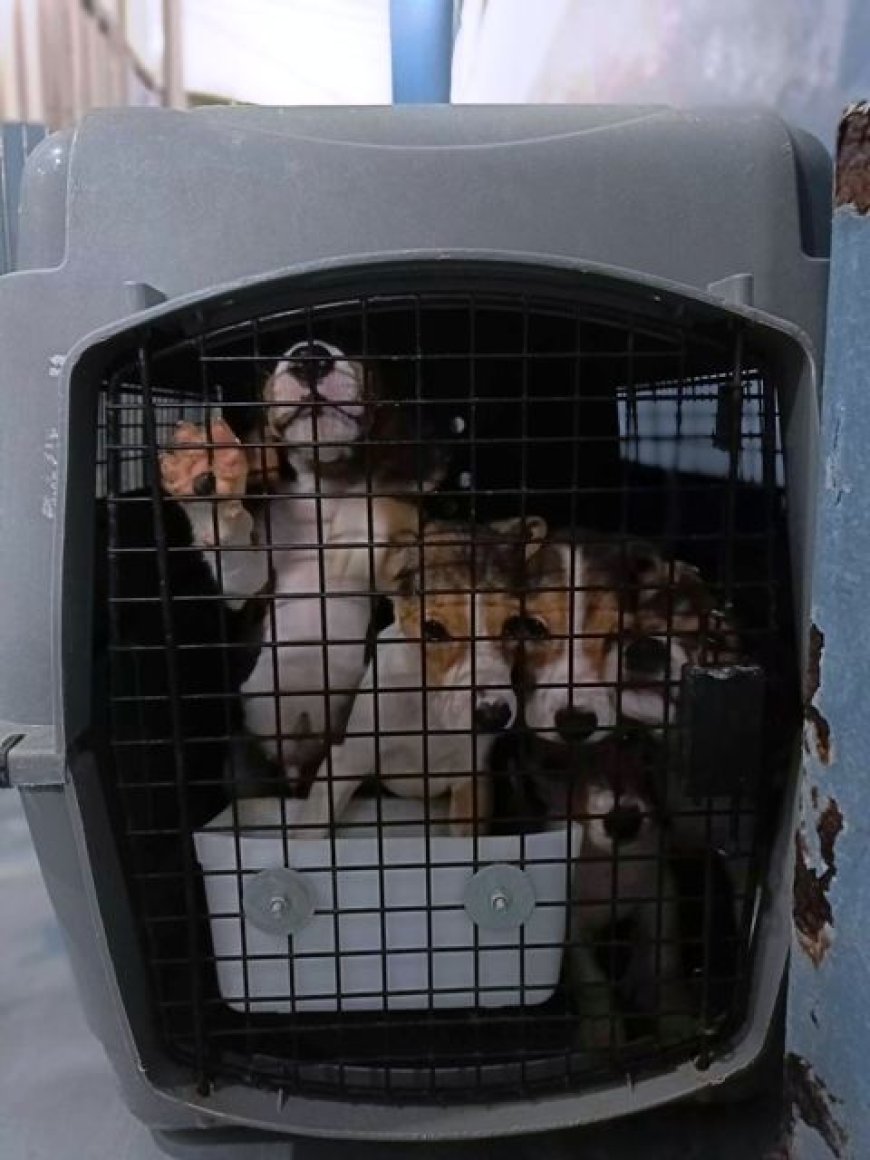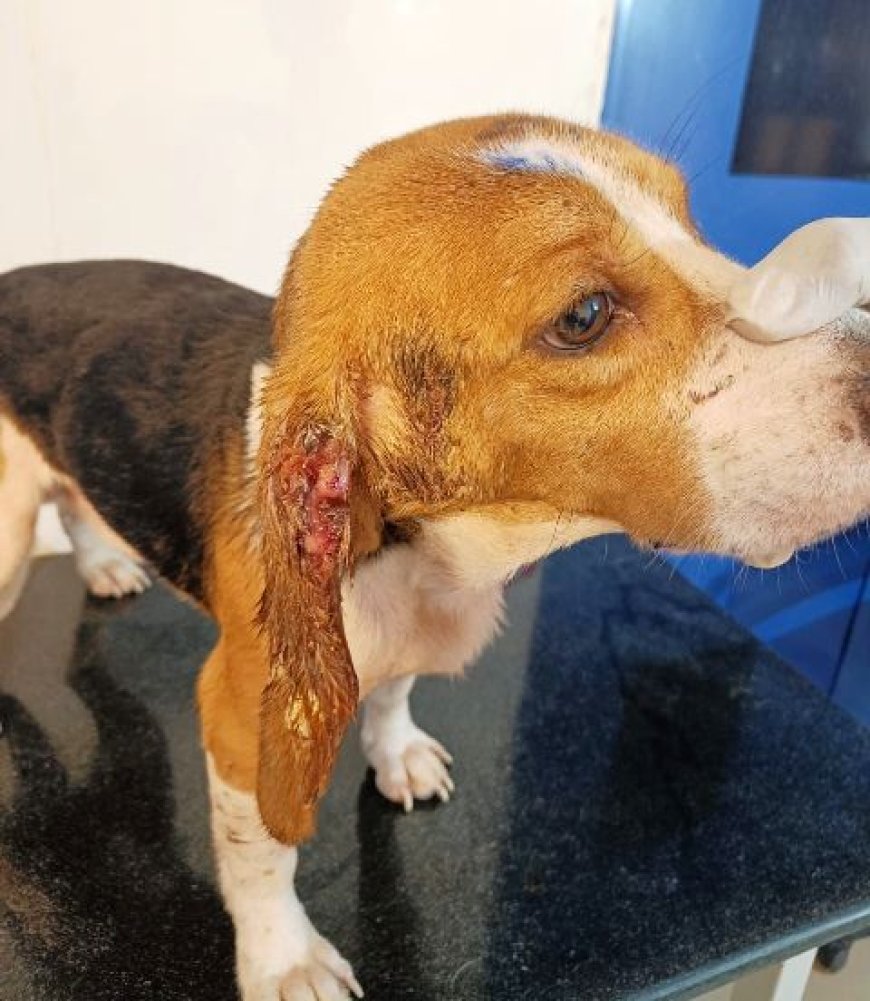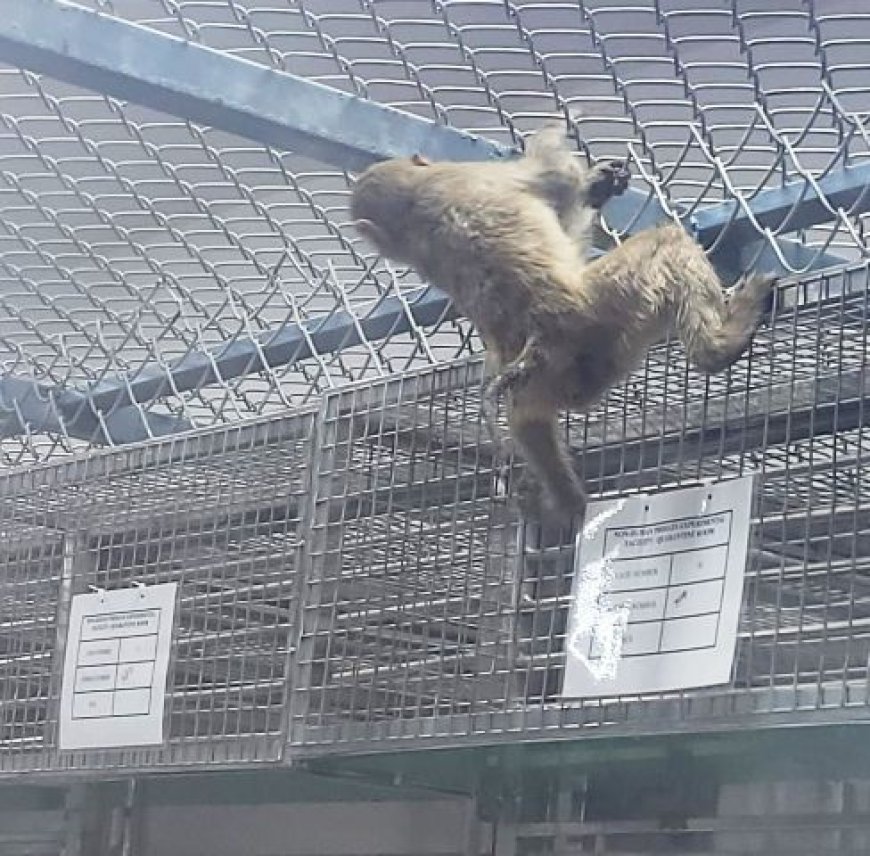Bloodied Dogs, Poisoned Pigs, Sick Monkeys at Testing Laboratory
PETA India exposé uncovering apparent egregious abuse of dogs, rhesus macaques, and minipigs at Telangana-based Palamur Biosciences Pvt Ltd, a government-registered contract laboratory.

People for the Ethical Treatment of Animals (PETA) India exposé uncovering apparent egregious abuse of dogs, rhesus macaques, and minipigs at Telangana-based Palamur Biosciences Pvt Ltd, a government-registered contract laboratory that tests drugs, pesticides, and medical devices on animals, often for foreign clients. Palamur Biosciences is self-proclaimed as “one of the largest preclinical service providers” in India.
According to the whistleblowers this laboratory which poisons beagles and other animals as a matter of course, has reportedly subjected animals to overcrowded cages or in other cases social isolation, environments that caused animals injuries and infections, and an often painful death when the animals are deemed no longer of use.

Palamur kept more beagles than the facility could properly house—some 1,500 dogs in a space designed for a maximum of about 800, forcing three to four dogs into cages meant for just two. The overcrowding, coupled with a lack of socialization and competition for food, led to extreme frustration and frequent fights, often causing serious injuries, especially to the dogs' ears. Despite these wounds, the company failed to provide basic care, neglecting both proper wound cleaning and pain management.
Animal care staff at Palamur were seen handling dogs roughly, with some workers kicking the animals or carelessly closing cage doors on their legs. A whistleblower claimed dogs sustained fractures from rough handling.
In some studies conducted by Palamur, dogs were injected with test compounds under the skin (subcutaneously). These injections—either due to the compounds themselves or impurities in their formulation—sometimes cause infections at the injection sites. These infections could spread, eating through the skin and damaging the underlying tissue, leaving the dogs with open, painful wounds.
In other studies, dogs became very sick, suffering ulcers in their mouths or intestines. The company kills dogs using thiopentone but fails to sedate them beforehand—a basic step that could reduce their fear and distress in their final moments. Palamur purchased Göttingen minipigs from a company in Denmark, but did not have a license to breed them. At one point, a minipig became pregnant, and the head veterinarian ordered the killing of the eight to ten piglets born. The piglets were painfully killed via intracardiac injection.
Despite a policy requiring playtime for pigs, Palamur routinely fails to provide this. Pigs would only be given access to enrichment when customers were visiting; otherwise, they remained confined to their cages and were only removed for experimental procedures.

Monkeys supplied from Rajasthan
Palamur obtained wild rhesus macaques from a supplier in Rajasthan. Some monkeys who had been captured tested positive for zoonotic pathogens, likely monkeypox. Despite the potential public health risk to company employees and the community at large, the company kept the matter quiet and simply killed the monkeys while risking infection to others who were used for experiments.
PETA India has submitted complaints to the Committee for the Control and Supervision of Experiments on Animals (CCSEA), the Central Drugs Standard Control Organization (CDSCO), and the National GLP Compliance Monitoring Authority (NGCMA). The group is urging immediate termination of the company’s registration to use animals in testing, prosecution under applicable rules, and rehabilitation of survival animals.
What's Your Reaction?

















































